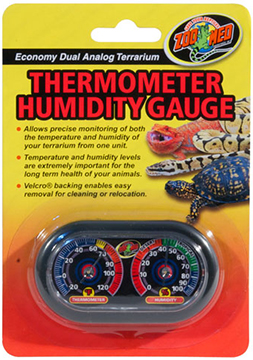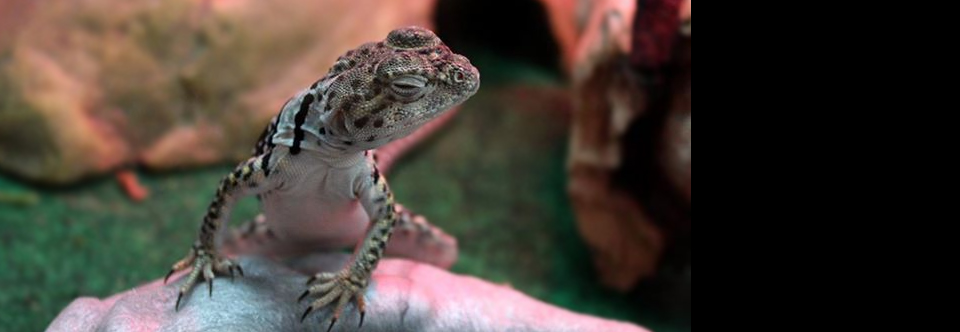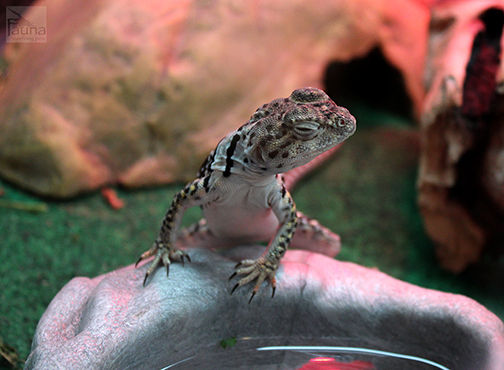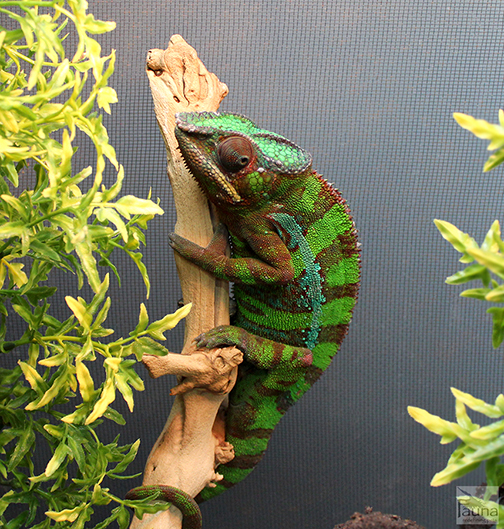Here at Fauna one of the most common reptilian issues brought to our attention during these cold winter months is low humidity. Some of the signs that can be seen include decreased appetite, firm stool or constipation, inactivity, poor shedding, and may possibly include respiratory problems. Many people are unaware of how humidity actually affects their animals, especially when dealing with desert dwelling species that we associate with very dry habitats.
When we look at humidity it is important to understand that generally during warm weather the humidity is higher than during the cold. According to the Mayo Clinic, the average relative humidity for someone’s home should be maintained between 30-50%. Humidity greater than 50% can cause mold, mildew and bacterial growth resulting in other health problems such as increased allergy issues. Once the humidity level drops below 30% we start to lose hydration from our bodies. This equally happens to our pets! Low humidity can cause irritation of the mucous membranes, dry itchy skin, dehydration and actually increases the risk of catching the common cold, which thrives in dry conditions.
Simply breathing releases a lot of the body’s fluids. Under optimal conditions this does not result in a major loss as moist air enters our lungs. However when the humidity is below ideal conditions it can result in dehydration. We happen to manage our own hydration level by drinking more fluids or increasing the wet foods we consume without much thought, such as soups. Since most reptiles do not tend to increase the amount of fluids they are drinking during these times to maintain hydration it is important for owners to ensure that the relative humidity is within normal limits.
 There are many things you can do to help increase the humidity for your reptile. Start by purchasing a hygrometer so you know the actual humidity level. Just the same as the habitat temperatures, don’t assume that you know that the humidity is good because it “feels” like it. You’d be amazed at how devastatingly wrong our accuracy can be when it comes to temperature and humidity.
There are many things you can do to help increase the humidity for your reptile. Start by purchasing a hygrometer so you know the actual humidity level. Just the same as the habitat temperatures, don’t assume that you know that the humidity is good because it “feels” like it. You’d be amazed at how devastatingly wrong our accuracy can be when it comes to temperature and humidity.
Typically I recommend a room humidifier since it is beneficial for the household, including the pets. When using a humidifier of any type, you will need to perform regular cleaning and maintenance to prevent the growth and spread of harmful bacteria and mold.
Aside from a humidifier, or in addition to one, you can cover a portion of the top (not blocking the lights) with glass or plastic, and add a hide filled with moistened sphagnum moss and mist the enclosure frequently.
There are products available that can help manage some of this work for you if you have limited time such as the Repti-fogger, Habba-Mist or Monsoon Misting systems.
If you are having any of these issues and need some assistance, please feel free to contact us here at the store at (212) 877-2473, or stop by and speak to one of our reptile specialists.
.
![]()
![]()
![]()
![]()
![]() To learn more about Fauna NYC, visit our website! Sign up for our eNewsletter for new animal arrivals, product discounts, and upcoming events.
To learn more about Fauna NYC, visit our website! Sign up for our eNewsletter for new animal arrivals, product discounts, and upcoming events.



